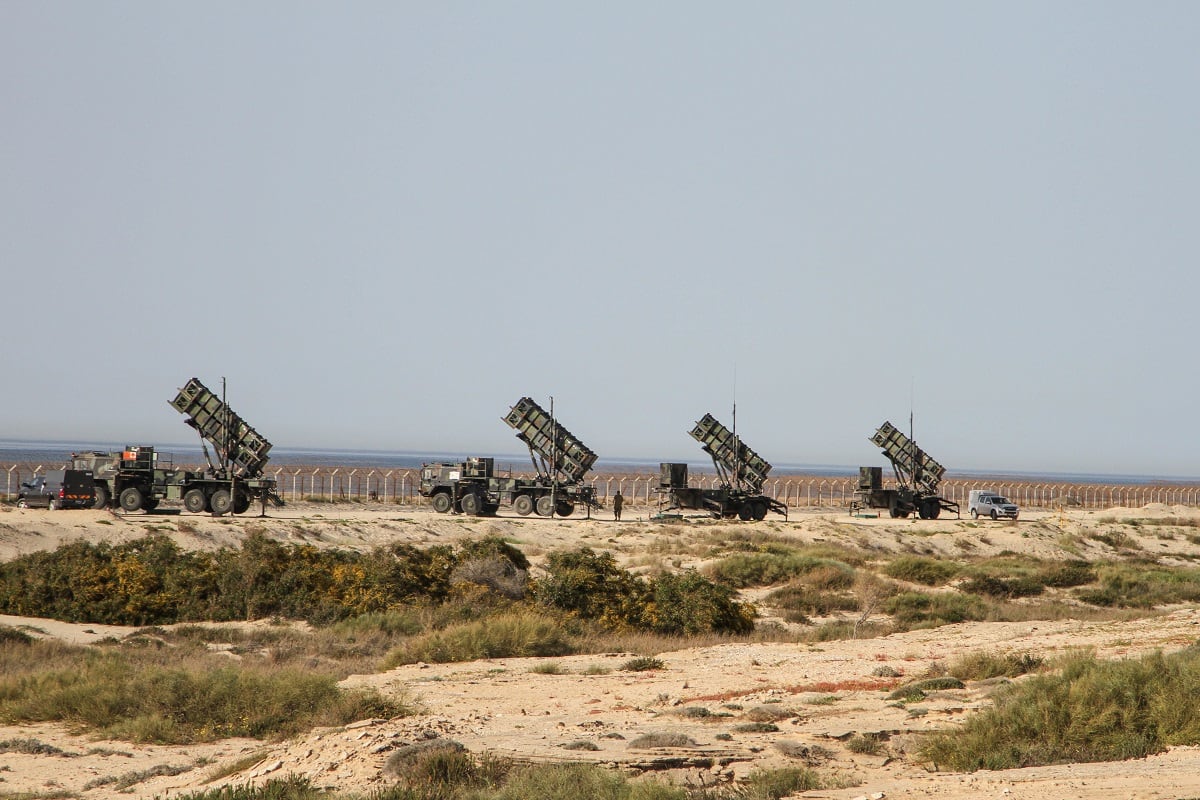Correction: The headline on this story has been changed because a previous version misidentified the incumbent in the program to replace Germany’s legacy Patriot air-defense batteries.
BERLIN ― Lockheed Martin and its German partner MBDA are going on the offensive in the war of words with Patriot-maker Raytheon, raising the stakes in a prized air-defense acquisition for the German military that could redefine the vendor landscape worldwide.
The trans-Atlantic venture is the incumbent for a program to replace Germany’s legacy Patriot air-defense batteries. The government in 2015 decided to model its next-generation weapon on the Medium Extended Air Defense System, designed on the premise of an open-system architecture, easy transportability, and 360-degree sensing and interceptor-launching capability.
As time nears for the companies to forge a final agreement with the Defence Ministry on the scope and cost of the new project, dubbed TLVS, competitor Raytheon has intensified its campaign for Berlin to simply stick with upgrading the existing hardware.
According to Patriot advocates, Germany runs the risk of building a defense so new that none of its neighbors have it, putting at risk the idea of interoperability in Europe. That is especially the case after some neighbor countries have opted to buy Patriot in recent years.
RELATED

But in the eyes of MBDA Deutschland Managing Director Thomas Gottschild, Germany should stick to the premise of fielding a brand-new system, especially given Berlin’s leadership ambitions in Europe.
In addition, a successful fielding of TLVS for Germany would enable the industry team to angle for new customers looking to abandon Patriot equipment in the years ahead, he argued. “Basically, every Patriot customer is a future customer of ours,” he told a small group of reporters at the Berlin Air Show last week. “So when Patriot systems are getting obsolete, we are there to replace the system components … with TLVS.”
Before it can come to that, however, Lockheed and its German partner must first stick the landing, and this year promises to be a make-or-break moment.
Despite claims of lower costs and faster fielding from Raytheon and its partner Rheinmetall, ministry officials continue to support their TLVS pick.
“They don’t have any data, they don’t know the requirements, so they can make any statement they want,” Gottschild said of the competition. “They don’t have to prove it.”
But in some ways, the program has left the stage of technical particulars and its success may be tied as much to public perception, namely on price, as it is to the proposition that it represents a generational leap in air defense.
“There will not be any surprises,” said Tim Cahill, a vice president at Lockheed Martin’s Missiles and Fire Control unit, referring to the ongoing talks about costs with government officials in Germany. “They’ve been in the negotiations for months. They know exactly what we’re doing and how we’re doing it.”
Sebastian Sprenger is associate editor for Europe at Defense News, reporting on the state of the defense market in the region, and on U.S.-Europe cooperation and multi-national investments in defense and global security. Previously he served as managing editor for Defense News. He is based in Cologne, Germany.








